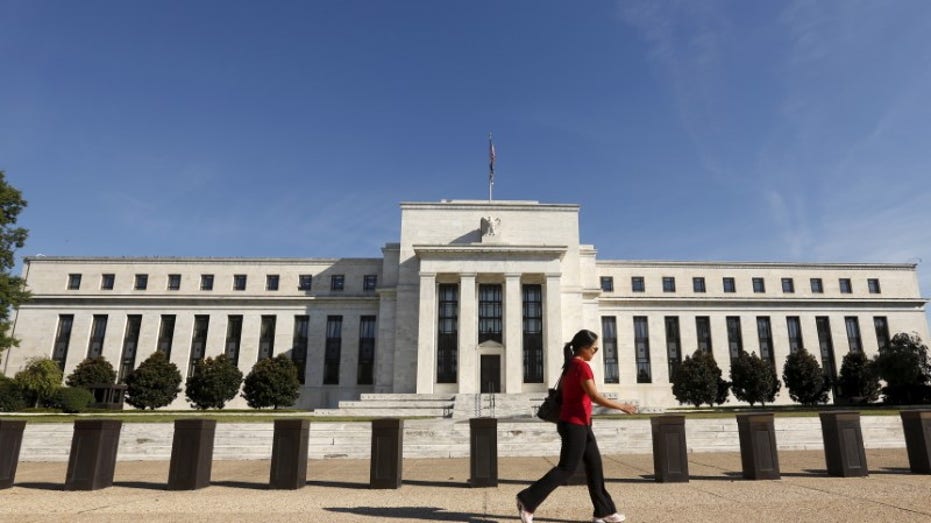Fed faces fresh pressure to raise interest rates as inflation hits 30-year high
Fed may not be able to 'stay on sidelines much longer' with inflation surging
The Federal Reserve says inflation is ‘not transitory’ is a ‘farce’: Economist
Johnson Smick International chairman and CEO David Smick provides insight into whether inflation is transitory.
The Federal Reserve for months has taken a patient stance on hotter-than-expected inflation, reiterating frequently that a months-long surge in consumer prices is transitory and that raising interest rates too soon risks the U.S. from achieving full jobs recovery.
But experts are calling that philosophy into question, after the government reported on Wednesday morning that prices for U.S. consumers surged 6.2% in October compared with a year earlier. So-called core prices, which exclude the more volatile measurements of energy and food, rose 4.6% over the past year. Both are the largest increases in 30 years.
"It is hard to see how the Fed will be able to stay on the sidelines much longer," said Matthew Sherwood, global economist at the Economist Intelligence Unit.
Combined with new evidence that the labor market is bouncing back from a summer slump – the unemployment rate fell to a new pandemic low of 4.8% in October as the economy added 531,000 jobs – the U.S. central bank may have no choice but to raise interest rates as soon as next summer.
FED TO TAPER BOND PURCHASES BY $15B A MONTH AS IT EXITS PANDEMIC-ERA POLICY
Traders are now pricing in at least two rate hikes in 2022, and about a 46% chance of a third increase, according to the CME’s FedWatch tool.

Still, others are skeptical that October's inflation figure alone will force the U.S central bank to change its trajectory. Seema Shah, a chief strategist at Principal Global Investors, suggested that policymakers are not only fully focused on reaching maximum employment, but have already factored in above-target inflation into their economic forecasts.
"Is this sufficient to force the Fed's hand?" Shah asked. "This long, long transitory period has to heap pressure on the Fed – and yet it is doubtful they will act before late-2022."
The Federal Open Market Committee announced plans last week to begin gradually winding down its aggressive bond-buying program by $15 billion a month – a decision that was highly telegraphed to the markets in order to avoid a potential sell-off. Under the current timeframe, the Fed would stop buying bonds in June; it has previously said it wants to end that program before raising rates.
What the Fed did not address, however, is whether persistently high inflation has them reconsidering rock-bottom interest rates.
Chairman Jerome Powell has repeatedly maintained that inflation is "transitory" and blamed disrupted supply chains, pent-up consumer demand and stimulus cash for the run of higher prices. But he's modified his tone in recent weeks, acknowledging that surging inflation may not fade until the latter half of 2022.

"Our baseline expectation is that supply bottlenecks and shortages will persist well into next year and elevated inflation as well," Powell told reporters. "And that, as the pandemic subsides, supply chain bottlenecks will abate and job growth will move back up. And as that happens, inflation will decline from today's elevated levels."
When it comes to raising interest rates in order to tamp down inflation, however, central bank officials are wary of retracting economic support too soon and derailing the U.S. recovery from the pandemic.
GET FOX BUSINESS ON THE GO BY CLICKING HERE
Asked during a press conference whether the markets, which are factoring in at least one rate hike next year, are wrong, Powell demurred. He suggested that Fed policymakers will wait for the supply chain disruptions to dissipate and inflation to slow, which he projected could happen in the second or third quarter of 2022, before hiking rates.
"We will be patient," he said. "If a response is called for, we will not hesitate."





















